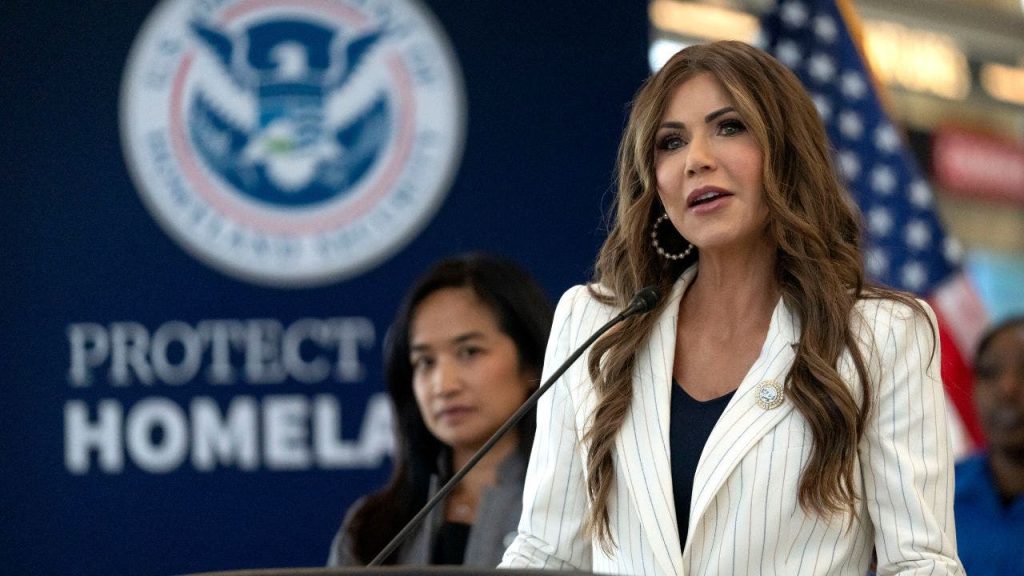Inhumane Conditions Alleged at California Migrant Detention Facility
A deeply troubling federal lawsuit filed on Wednesday paints a disturbing picture of conditions at California’s largest migrant detention center. The American Civil Liberties Union, representing seven detained men, has documented allegations that would shock the conscience of most Americans. The facility in California City, a repurposed desert prison, reportedly subjects detainees to sewage bubbling up from shower drains while forcing them to use soiled bandages on open wounds. One plaintiff, Sokhean Keo, expressed the dehumanizing treatment in stark terms: “ICE is playing with people’s lives, and they treat people like they’re trash, like they’re nothing.” Some detainees reportedly shower without soap and suffer weight loss from inadequate nutrition, painting a picture of neglect that falls far below basic standards of human dignity. The lawsuit details how when the facility first opened, men were instructed to clean cells containing feces and garbage without proper cleaning supplies, suggesting a systematic disregard for sanitation and health.
The medical neglect described in the complaint is particularly alarming, with detainees suffering from serious conditions including cancer, heart disease, and diabetes allegedly receiving inadequate care. Fernando Gomez Ruiz’s story exemplifies this troubling pattern. A diabetic who was detained by ICE while eating at a food truck outside Home Depot last month, Ruiz claims he has been denied regular insulin doses. According to the lawsuit, this has resulted in dangerous blood sugar spikes and a “large, oozing ulcer on the bottom of his foot” that he must cover with dirty bandages because clean ones aren’t available. His fear of losing his foot highlights the potentially life-altering consequences of such neglect. Beyond physical health concerns, the lawsuit also details the psychological impact of these conditions, with detainees reportedly experiencing “hopelessness, desperation and, in some cases, self-harm and suicidal ideation” due to extended isolation in cells with nothing to occupy their time.
The complaint extends beyond healthcare issues to encompass various aspects of daily life within the facility. Detainees reportedly endure frigid temperatures, restricted family visitation, and significant delays in accessing legal counsel. Perhaps most troubling are the allegations of religious discrimination, with prayer mats, head coverings, and even sacred texts allegedly being confiscated from detainees. These actions potentially violate constitutionally protected religious freedoms. The infrastructure itself is reportedly crumbling, with severe understaffing exacerbating these problems. Gustavo Guevara, another plaintiff, expressed his hope that society would not “turn a blind eye” to these injustices, stating: “It’s not right that because we’re immigrants they feel they can treat us this way.” His statement captures the sentiment that immigration status should not determine one’s right to humane treatment.
The facility’s history adds important context to these allegations. Formerly a prison that was shuttered in 2023, it was reopened under an ICE contract as a migrant detention center with a capacity for 2,560 beds. Since late August, officials have been transferring migrants to the location, with current occupancy at approximately 800 people. The facility is expected to reach full capacity by early 2025, coinciding with the Trump administration’s intensified deportation efforts targeting migrant communities. Kyle Virgien, senior staff attorney at the ACLU’s National Prison Project, framed the situation as emblematic of “ICE’s utter disregard for the rights and dignity of people in its custody,” emphasizing that necessities like food, basic medical care, and legal counsel are constitutionally protected rights rather than optional privileges.
The lawsuit argues that conditions at the California City facility are worse than those found in criminal prisons, raising serious questions about the standards applied to civil immigration detention. The extended cell confinement without meaningful activities has reportedly created an atmosphere of desperation among detainees. Immigration advocates have long argued that civil detention should not be punitive, yet the allegations in this case suggest treatment that appears to be precisely that. The ACLU’s involvement signals the seriousness of these claims, as the organization has a long history of challenging detention conditions through litigation. Their assertion that the facility falls below minimum constitutional standards will likely face rigorous examination in court, potentially setting important precedents for immigration detention practices nationwide.
Department of Homeland Security spokesperson Tricia McLaughlin has firmly denied these allegations, countering that “ICE has higher detention standards” than most prisons. According to McLaughlin, all detainees receive three daily meals, clean water, clothing, bedding, showers, and toiletries, along with access to phones for communicating with family members and legal representatives. She further stated that certified dieticians evaluate meals served at the facility. These contradictory narratives highlight the challenge in assessing conditions inside detention facilities, where access for independent observers is often limited. As this case progresses through the legal system, it will likely spark broader discussions about transparency, accountability, and the fundamental standards that should govern the treatment of migrants in American detention facilities, regardless of their immigration status. The outcome could significantly impact how the United States balances immigration enforcement with its constitutional and moral obligations to treat all people humanely.


